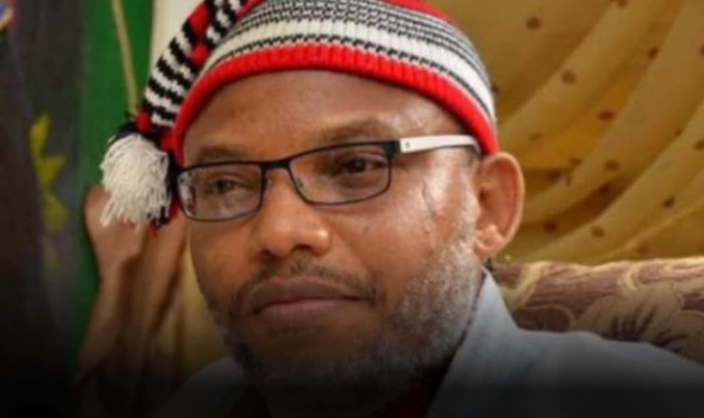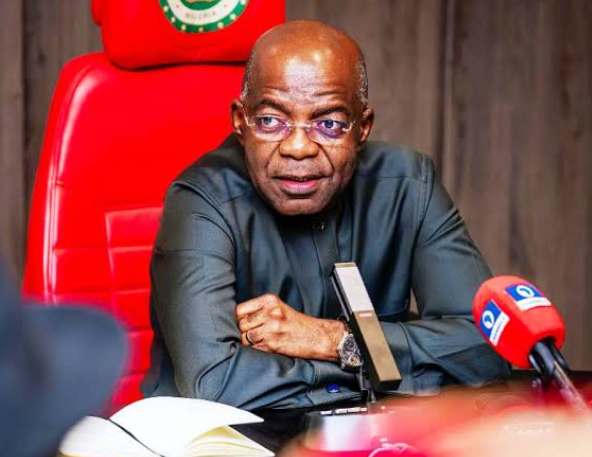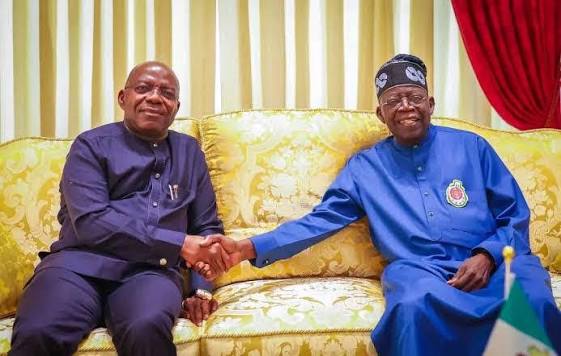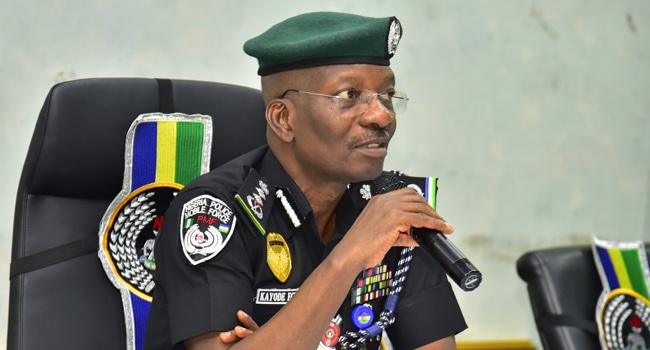
“You Don’t Know the Law”: Courtroom Erupts as Nnamdi Kanu Confronts Justice Omotosho in Fiery Abuja Trial Session

The Federal High Court in Abuja witnessed one of its most dramatic sessions in recent memory on Thursday as the embattled leader of the Indigenous People of Biafra (IPOB), Nnamdi Kanu, openly challenged the trial judge, Justice James Omotosho, insisting that the court was relying on nonexistent laws to prosecute him. What began as a routine discussion on procedural filings quickly escalated into a tense faceoff, drawing gasps from the courtroom and intensifying the already heated atmosphere surrounding the long-running trial.
The clash erupted when the court moved to address the filing of Kanu’s final written address. Representing himself after disengaging his legal team, Kanu declared that he had the constitutional right to file his submissions and questioned why the court had attempted to curtail that right. Addressing Justice Omotosho directly, he demanded clear legal justification for the restrictions that had previously been placed on the filing of his defence documents. His bold challenge triggered murmurs across the courtroom, but Kanu remained firm, insisting that the prosecution was building its case on repealed laws and invalid statutory provisions.
Kanu repeatedly cited Section 36(12) of the Nigerian Constitution, stressing that no Nigerian can be tried or convicted for an offence not explicitly defined in written law. He argued that several of the statutes and legal references used by the prosecution had long been struck out or amended, making the charges against him void. According to him, “This entire case is a nullity,” a statement that further heightened the already tense ambiance. He maintained that he had filed a motion on notice, a sworn affidavit, and constitutional arguments that collectively formed both his defence and his final written address, insisting that the court was bound to consider them.
The judge, however, countered that the rights Kanu claimed could not be exercised in ways that deliberately stalled the proceedings. Justice Omotosho reminded him that while he was educated and well-spoken, he was not a trained lawyer and must understand the consequences of procedural decisions in criminal matters. “This is a criminal matter,” the judge emphasized, “and you must understand the implications of refusing to open your defence.” His warning suggested that the court could interpret Kanu’s continuous filings and objections as a deliberate attempt to delay the trial.
The prosecution, led by veteran Senior Advocate of Nigeria (SAN) Adegboyega Awomolo, aligned with the judge’s position, accusing Kanu of repeatedly attempting to obstruct the trial. Awomolo argued that the IPOB leader was using self-representation as a tool to derail progress, filing documents at every turn while declining to enter formal defence. According to him, the court had shown unusual patience, and the time had come for the trial to proceed to its natural conclusion.
Despite the sharp exchanges, Justice Omotosho eventually struck a balance. He affirmed that the court would consider all the documents Kanu had filed, but only at the judgment stage. He also reiterated that the trial could not continue indefinitely, hinting at the court’s resolve to avoid further delays. His ruling attempted to cool tensions in the room, though the atmosphere remained charged, with observers noting that Kanu’s unusually confrontational stance underscored his frustration with the legal process.
The significance of Thursday’s session extended beyond the dramatic exchanges. It brought to the forefront the fundamental legal questions surrounding the charges against Kanu, particularly his argument that the prosecution had failed to cite valid, extant laws defining the alleged offences. Legal analysts observing the proceedings noted that the debate over repealed laws and constitutional safeguards was likely to form a critical part of the court’s final judgment. They also pointed out that Kanu’s decision to represent himself added a new layer of unpredictability to a case that has captured both national and international attention.
Ahead of the proceedings, the court had already fixed 20 November 2025 for the delivery of judgment. However, the trial remains complicated by a fresh appeal filed by Kanu, urging the Court of Appeal to halt the judgment process entirely. His appeal challenges the jurisdiction of the Federal High Court and questions the legality of the charges as framed by the federal government. With this new legal battle now in motion, observers say it remains uncertain whether the November judgment date will stand or whether the appeal could force yet another delay in a case that has stretched over several years.
As the session drew to a close, Kanu remained unwavering in his position. He insisted that all he had done was exercise his constitutional rights and demand that the court adhere strictly to written law. His repeated declarations that the case was built on invalid statutes echoed throughout the courtroom long after he was led away. Supporters and critics alike left the premises with renewed debates about the legitimacy of the trial, the conduct of the court, and the ongoing political implications of the IPOB leader’s prosecution.
Once again, Nnamdi Kanu’s trial has ignited national discussion, revealing the deep legal and political fault lines surrounding his case. Thursday’s dramatic courtroom confrontation serves as another reminder that, far from winding down, the IPOB leader’s legal battle continues to evolve, raising new questions even as it heads toward judgment. Whether the court will ultimately agree with his arguments, or whether the state’s case will prevail, remains to be seen—but what is clear is that the outcome will reverberate far beyond the walls of the Federal High Court.


